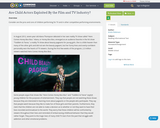
Consider are the pros and cons of children performing for TV and in other competitive performing environments.
- Subject:
- Reading Informational Text
- Material Type:
- Homework/Assignment
- Author:
- Kristin Robinson
- Date Added:
- 03/25/2020

Consider are the pros and cons of children performing for TV and in other competitive performing environments.
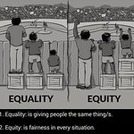
This lesson is designed for students to learn basic social justice vocabulary, such as systemic racism and analyze if equity matters. Through vocabulary development of terms around race relations and equity, along with the analysis of two articles, students will gain an understanding of equity in social organizations. Finally, using the articles, the content-specific vocabulary and their own schema, students will discuss if equity matters in a Socratic seminar.

This lesson focuses on the chapter “Chinatown” from Laurence Yep’s memoir, The Lost Garden. Students will consider the factors that contributed to Yep’s struggle to find a sense of belonging with his peers and in his community. Students will determine in what ways the essential question (In what ways does our need to feel a sense of belonging conflict with our individuality?) is relevant to Laurence Yep’s experience as he describes it in “Chinatown”.
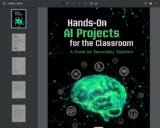
This guide provides student-driven projects that can directly teach subject area standards in tandem with foundational understandings of what AI is, how it works, and how it impacts society. Several key approaches were taken into consideration in the design of these projects. Understanding these approaches will support both your understanding and implementation of the projects in this guide, as well as your own work to design further activities that integrate AI education into your curriculum.
Project 1: AI Chatbots
Project 2: Developing a Critical Eye
Project 3: Using AI to Solve Environmental Problems
Project 4: Laws for AI
Visit the ISTE website with all the free practical guides for engaging students in AI creation: https://www.iste.org/areas-of-focus/AI-in-education

Every media source has a story to tell--a driving purpose. The media that people consume largely shapes their world views. The US public is becoming more divided partially due to the consumption of increasingly biased news. As a critical consumer of media, It is important to be able to separate fact from opinion. In this unit, adapted from the high school version, students will become critical consumers of news, by identifying media bias in order to become better informed citizens. NOTE: This unit has been adapted for use at the middle school level from the resource Identifying Media Bias in News Sources by Sandra Stroup, Sally Drendel, Greg Saum, and Heidi Morris.
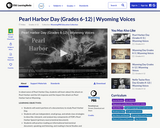
Students will learn about the attack on Pearl Harbor and the US response of the Pearl Harbor Day observance.

In this lesson students will examine the characters in a chapter who happen to have differing view points. This is an important factor for success with this lesson. Students will analyze characters and actively express theiir perspectives on different topics and questions. Students will use their background knowledge,previous learning from the book, and make inferences about the characters. During the "discussion" students use their acting skills to be a partticular character and discuss from that point of view. They will justify the stance they take as they speak in character. This creates a great understanding of perspective and view points before moving into deeper dives about author's perspectives.
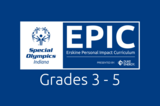
After reading Playing for Change, students will have the opportunity to break into groups and do research about various subgroups and topics provided in the text. The intention is for this to be a jigsaw activity where groups can organize their information with the interactive notebook sheets provided, and then present or share with the class what they have learned. Teachers can use this for language arts or social studies assessments, if needed.
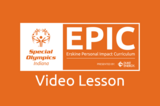
Story tells how Carl Erskine became lifelong friends with Johnny Wilson, then Jackie Robinson. Also, learn the story of how Carl compares his World Series ring and son Jimmy’s Special Olympics medal.32 pages Suggested for grades 4-6 ISBN: 979-8-9863985-1-8Library of Congress: GV861. L87 B76 2022

Objectives of this mini unit:For students to explore the "universal call to action" laid out in the Sustainable Development Goals (SDGs) and consider how they may respond to that call;Build background knowledge about specific issues impacting the Arctic including: indigenous rights, indigenous health, biodiversity, tourism and marine pollution; Build background knowledge about specific issues impacting their local communtiy (using Michigan as a case-study) including: hunger, homelessness, poverty, youth violence and the environment;Create an action plan to address needs within their local communities driven by their unique passions, interests and skills;Consider the importance of impact vs intention when engaging with community action projects

***This curriculum is provided by The Edible Schoolyard Project with full permission to share*** Understanding Organic: Connections to Action in the Garden Classroom is a garden and classroom-based curriculum for middle to high school students that explores the concepts and meanings of organic agriculture. The curriculum consists of a short preparatory unit, a sequence of ten core lessons, and twelve optional extension inquiries that can also be taught as standalone lessons. The ten core lessons utilize hands-on explorations of organic practices and feature textual analysis and open discussions to examine the complex meanings of organic. The final project workbook introduces students to a social action project in which students apply their knowledge and experiences to enact justice-oriented change related to organic. We recommend that you start by reading the curriculum overview linked below before reading individual lessons.